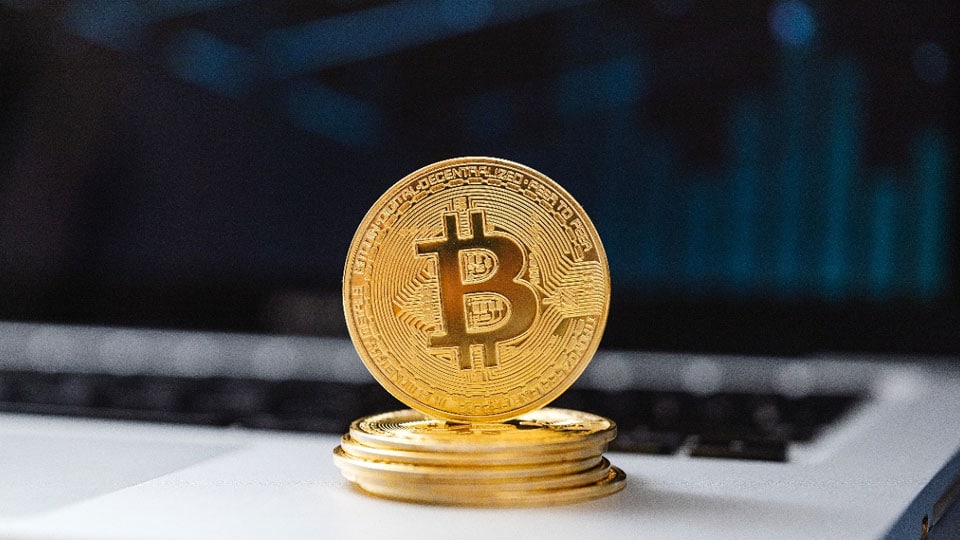Bitcoin, the revolutionary decentralized digital currency, relies on a global network of nodes to operate securely and efficiently. These nodes play a crucial role in validating transactions, maintaining the blockchain, and ensuring the network’s integrity. However, as the popularity and adoption of Bitcoin have grown exponentially, the infrastructure supporting it has faced numerous challenges, particularly in terms of Internet Protocol (IP) addresses. This article explores the transition from IPv4 to IPv6 nodes in the Bitcoin network, delving into the significance, necessity, and implications of this migration. Modern day trading resources like this app have made an impact by offering cutting edge technology based features to the traders across the glove. Get started!
The IPv4 Address Exhaustion Problem
Understanding IPv4
Internet Protocol version 4 (IPv4) is the fourth iteration of the Internet Protocol, serving as the foundation of the modern internet. It employs a 32-bit address system, which allows for approximately 4.3 billion unique addresses. While this seemed ample in the early days of the internet, the explosion of internet-connected devices and services has led to a severe scarcity of IPv4 addresses.
Bitcoin’s Growing Demand
Bitcoin’s growth has been nothing short of meteoric. As more users, businesses, and institutions join the network, the demand for reliable nodes that can facilitate transactions and maintain the blockchain has surged. Each active Bitcoin node requires a unique IP address to communicate on the network, and this demand has put immense pressure on the dwindling pool of available IPv4 addresses.
Challenges of IPv4 Scarcity
The scarcity of IPv4 addresses poses several challenges to the Bitcoin network:
- Limited Scalability: With a finite number of IPv4 addresses, accommodating the expanding Bitcoin network becomes increasingly challenging.
- Increased Costs: Obtaining IPv4 addresses has become costly due to their scarcity, potentially dissuading individuals from running Bitcoin nodes.
- Risk of Centralization: High costs and limited availability can lead to the centralization of Bitcoin nodes, undermining the network’s decentralized nature.
IPv6: The Solution to Bitcoin’s Scaling Challenges
Introduction to IPv6
IPv6, the sixth iteration of the Internet Protocol, was introduced to address the limitations of IPv4. It uses a 128-bit address system, providing an astronomical number of unique addresses (approximately 340 undecillion). IPv6 was designed to meet the demands of the digital age, accommodating the proliferation of devices and services on the internet.
Advantages of IPv6 for Bitcoin
Migrating Bitcoin nodes to IPv6 offers several advantages:
- Abundant Addresses: IPv6 addresses are virtually limitless, ensuring that Bitcoin can continue to scale and accommodate an ever-growing user base.
- Enhanced Security: IPv6 includes built-in security features, offering improved protection against cyber threats for Bitcoin nodes.
- Efficiency: IPv6 is more efficient in routing and reduces network congestion, leading to faster transaction processing.
Scalability Improvements
The adoption of IPv6 enables Bitcoin to overcome its scalability challenges:
- Network Growth: IPv6 eliminates the need to ration IP addresses, allowing the Bitcoin network to grow organically.
- Reduced Latency: Improved routing efficiency reduces transaction confirmation times, enhancing the user experience.
- Global Reach: IPv6 nodes ensure broader global reach, making Bitcoin accessible to underserved regions.
Implementing IPv6 in the Bitcoin Network
Steps and Considerations
Migrating Bitcoin nodes to IPv6 involves several critical steps and considerations:
- Node Software Updates: Bitcoin node operators must update their software to be compatible with IPv6.
- IPv6 Address Allocation: Obtaining IPv6 addresses and ensuring proper allocation to nodes.
- Testing and Debugging: Rigorous testing and debugging to ensure seamless IPv6 integration.
Challenges and Potential Obstacles
While IPv6 adoption is promising, it’s not without challenges:
- Resistance to Change: Some Bitcoin community members may resist transitioning to IPv6 due to the familiarity of IPv4.
- Legacy Systems: Older hardware and software may not support IPv6, posing compatibility issues.
- Education: Bitcoin users and operators require education and resources to navigate the migration successfully.
Case Studies
Examining successful cases of IPv6 integration in the Bitcoin ecosystem can provide valuable insights into best practices and potential pitfalls. Several forward-thinking Bitcoin businesses and node operators have already made the switch.
Ensuring Security and Compatibility
Security Concerns
While IPv6 brings inherent security benefits, it also presents unique challenges:
- Address Spoofing: IPv6’s vast address space can be exploited for address spoofing attacks.
- Firewall Configuration: Proper firewall configuration is critical to secure IPv6 nodes.
- Continuous Monitoring: Ongoing monitoring and security updates are essential to safeguard Bitcoin nodes.
Backward Compatibility
Maintaining compatibility with IPv4 is essential during the transition:
- Dual-Stack Configuration: Many Bitcoin nodes will operate with dual-stack support, ensuring they can communicate with both IPv4 and IPv6 nodes.
- Transition Mechanisms: Various transition mechanisms facilitate communication between IPv4 and IPv6 networks.
IPv6 Adoption Challenges and Solutions
Resistance to Change
Overcoming resistance within the Bitcoin community is paramount:
- Education and Awareness: Bitcoin forums, conferences, and online resources can educate the community about the benefits of IPv6.
- Incentives: Providing incentives such as reduced transaction fees for IPv6 nodes can encourage migration.
- Community Collaboration: Collaborative efforts among developers, miners, and node operators can drive adoption.
The Future of Bitcoin’s Network Infrastructure
Predictions for Growth
Bitcoin’s future is bright, with continued global adoption on the horizon:
- Mass Adoption: Bitcoin may become a ubiquitous form of digital currency, necessitating a robust network infrastructure.
- Technological Advancements: Ongoing technological advancements will further optimize Bitcoin’s network.
- Global Financial System: Bitcoin could play a significant role in shaping the future of the global financial system.
The Role of IPv6
IPv6 will play a pivotal role in ensuring Bitcoin’s scalability and longevity:
- Sustainable Growth: IPv6 will provide the necessary infrastructure for Bitcoin’s ongoing expansion.
- Network Resilience: A robust IPv6 network will make Bitcoin more resilient to attacks and disruptions.
- Innovation: The scalability afforded by IPv6 will open doors to new Bitcoin applications and use cases.
Conclusion
In conclusion, the shift from IPv4 to IPv6 nodes in the Bitcoin network represents a critical step in ensuring the cryptocurrency’s long-term viability. As Bitcoin’s global presence expands, the scalability and efficiency inherent to IPv6 become paramount. To secure Bitcoin’s future, it’s imperative for the community and industry stakeholders to collectively adopt IPv6, facilitating a network capable of meeting the demands of a digital era.








Recent Comments